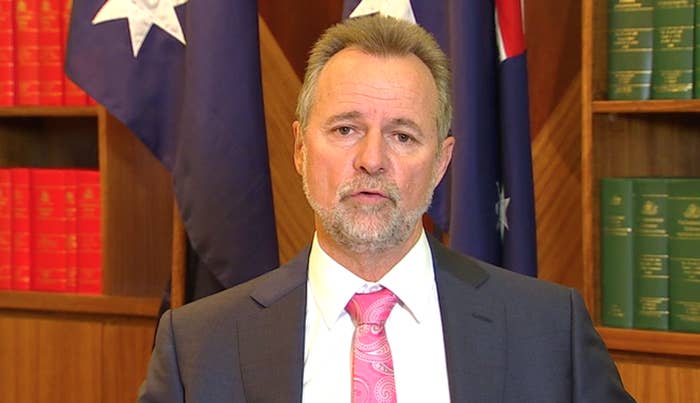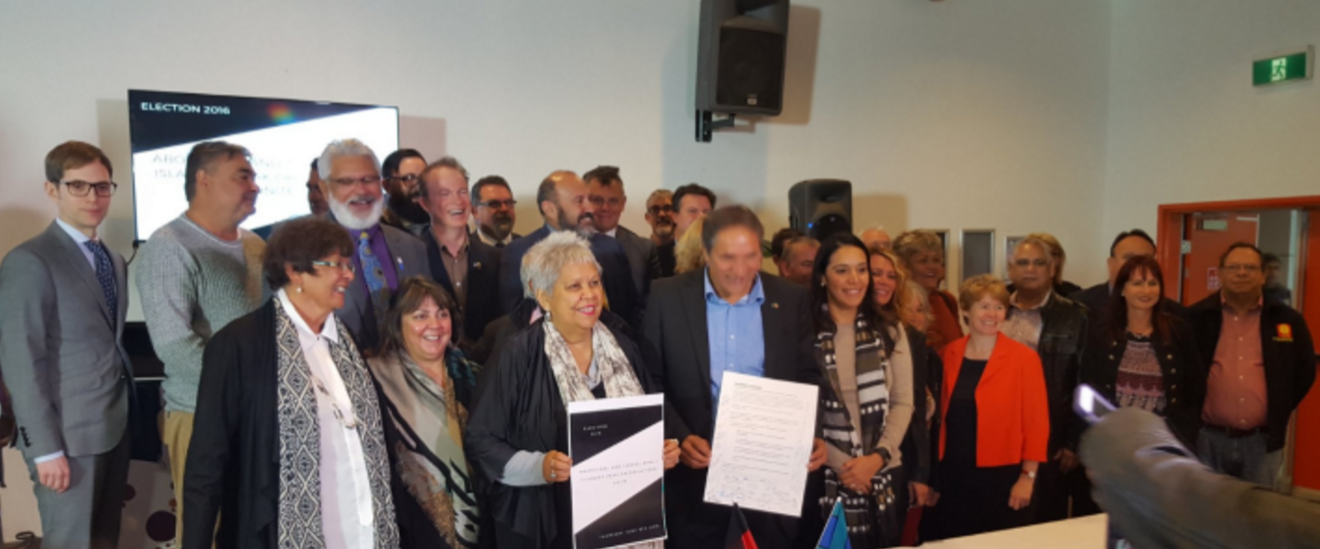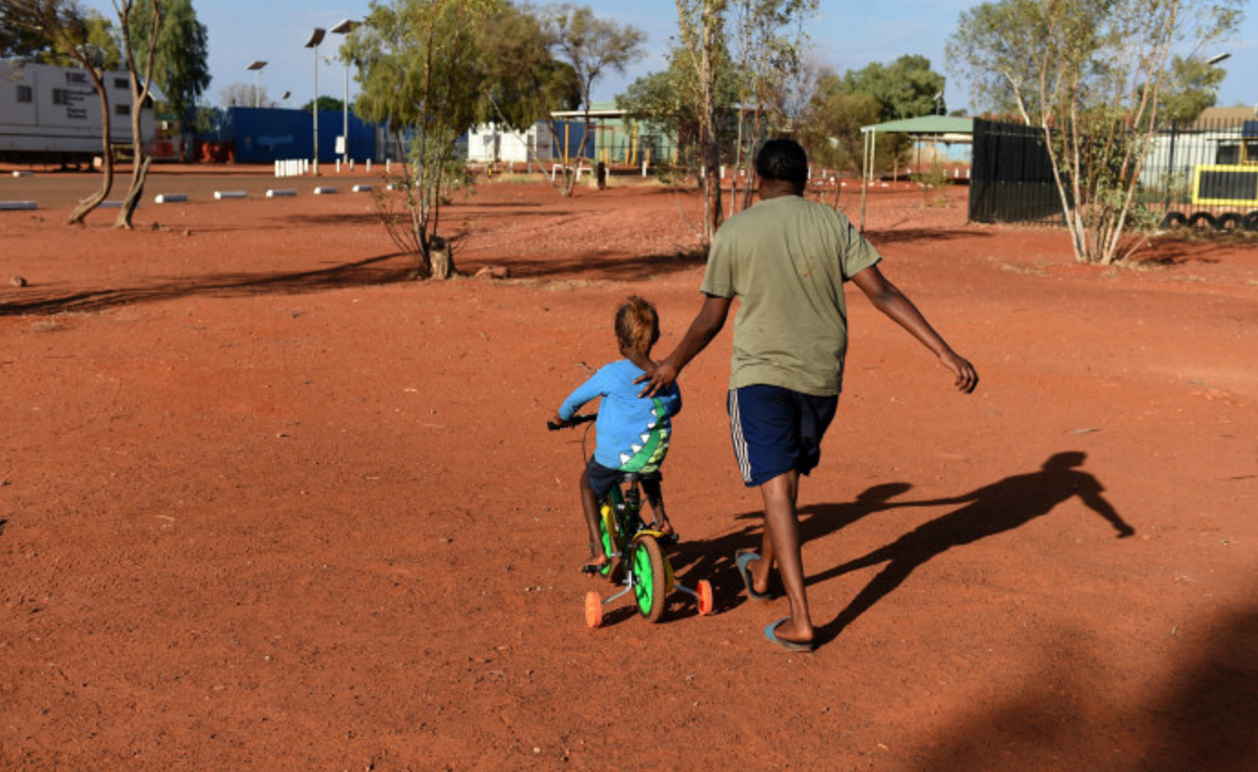The federal minister for Indigenous affairs has said for the first time that the push for constitutional recognition should not hinder discussion around the development of a treaty with Indigenous people.

Nigel Scullion made the comments after meeting with a group of influential Aboriginal leaders, many of them vocal critics of the federal government's engagement with the Indigenous community, on Wednesday.
"People are working away on the treaty... the fact that the Victorian government, for example, are now considering a treaty, and I’ll look with great interest about how they’re actually going to forward that, how they’re actually going to work on that," Scullion said on NITV's The Point.
"I guess the challenge that we all see is [ensuring] that people can have two conversations at once . You shouldn’t not be allowed to have one thing or another, that’s a complete nonsense," Scullion said.
While Scullion's mention of a treaty may have buoyed some at the meeting, he was quick to reiterate the government's main priority was on constitutional recognition of Indigenous people.
Australia is the only Commonwealth country not to have a treaty with its first nations' people. Treaties recognise Indigenous people's sovereignty over land and can pave the way for greater self-governance and economic independence.
Constitutional recognition would mean amending the Australian constitution to recognise that Aboriginal people were living here prior to settlement and would remove a clause allowing discrimination against people based on race.
"We also need to continue to stay focused on the council for recognition. They do some really important work," Scullion said. "We’re looking forward to the council to provide advice to the prime minister and the leader of the opposition about what they think the content of the proposal should be."

Scullion's comments came after the meeting with 18 Indigenous leaders, who represent an alliance made up of peak Indigenous organisations.
The meeting marked the end of a frosty stand-off that had been festering since the election when Indigenous groups launched the Redfern Statement, which included a number of election demands ranging from seeking a commitment to address crippling rates of Indigenous incarceration to more investment on closing the widening health gap between Indigenous and non-Indigenous people.
Earlier this year the group had its requests for meetings with Scullion refused several times.
Scullion has since come under fire for his inaction over the treatment of Aboriginal children in Northern Territory detention centres. After the ABC's Four Corners program aired shocking footage of Indigenous children being brutalised in detention, the minister said reports of the abuse hadn't "piqued his interest" at the time.

Rod Little, chair of the Congress of the First Peoples of Australia, said the backlash had seen Scullion commit to better community engagement.
"The takeaway that we got from the minister today was that he would commit to the ongoing conversation and workshop in relation to the engagement," Little said.
"We have had communication from the prime minister, he will meet with us, he will talk with minister Scullion about that," Little told NITV's The Point.
